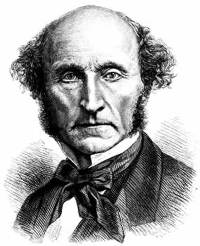***
On Thio Li-Ann's negative reception among NYU staff, students and alumni

On Feministe there is a long post by "Jill" reposting and replying to Thio Li-Ann's complaint that she is being oppressed and bullied by homosexual activists.
In short, Thio Li-Ann has been invited to be a Visiting Professor at NYU Law School, and people are protesting.
Jill's post boils down to:
i) It's okay to call Thio bigoted because she is against homosexuality
ii) Thio is not being oppressed because all people have done is protest
iii) Criminalising homosexual sex oppresses homosexuals
iv) Since ex-gays having sex is not criminalised, and they have the right to identify as ex-gay, they are not oppressed
v) Inviting a professor who is against gay rights is antithetical to NYU's support for LGBT students
vi) [Implicitly] You need to believe in all human rights to be able to teach a course on human rights
Now, although I disagree with Thio's views on homosexuality and I think she is overreacting somewhat (ironically, mirroring the claims of oppression by many gay activists), this is silly.
Point by point,
i) It's okay to call Thio bigoted because she is against homosexuality
The parallel case of racial discrimination is often trotted out, since it is widely accepted that advocating racial discrimination is bigotry.
While I am against racial discrimination (traditionally defined, and not necessarily more nebulous claims like institutional racism and unconscious racism) as well as similarly defined discrimination on the basis of sexual orientation, I will just point out that the two (in this context) are not exactly the same: one criminalises a state of being and the other behavior; I don't think Thio would object to homosexuals who do not indulge in homosexual sex, much less call for non-practising homosexuals to be criminalised (even if nominally).
There are two objections here:
a) homosexuals cannot help being homosexual (which is why gay activists are so against the ex-gay movement, despite being more likely to subscribe to tabula rasa views otherwise)
b) homosexuality does not harm anyone
To the latter, I am obliged to point out that incest does not harm anyone either, yet it is pretty uncontroversial to disapprove of and even criminalise it; if you think it should be banned because the offspring of incestuous unions have a higher risk of genetic defects, you should be fine with sterile unions - as well as opposed to the parents of children with Down's Syndrome (or those whom genetic tests show have a higher likelihood of having children with congenital problems) from having more children. Similar logic applies for polygamy and polyamory.
Socially, racist views are a lot less acceptable than homophobic ones, so there's something to be said for that. Doubtless, in 100 years discriminating against LGBTs will be a lot more unacceptable than at present (at least in developed countries), yet the zeitgeist is not at that stage yet.
(back)

ii) Thio is not being oppressed because all people have done is protest
If the protesters were only protesting I would totally support them.
Yet, they are calling for more than that.
Mr Graves-Pryor urges NYU Law to "take the right course of action and terminate its relationship with Professor Li-Ann Thio". So too, contradicting herself, does Jill proclaim that she will not "give a penny to an institution that invites people like Dr. Thio to teach" (even after she is long-gone). I am quite sure that others, too, are doing similar things.
(MFM pointed out that nothing has yet happened to her, yet if your neighbor takes out his parang you're not going to wait for him to attack you to call the police)
This brings up an important question: how far can you go to express your disagreement with speech you disagree with? Are boycotts legitimate ways of expressing your displeasure? But if not, is a purely verbal expression of displeasure effective in conveying the intensity of your disagreement (since pure disapproval will have no teeth)?
Advocates of freedom of speech frequently say that everyone has the right to say anything, but all too often their defense goes only so far as protecting people from governmental reprisals.
As Jill says, "your choices... have consequences", presumably up to and including dismissal from employment (this is oddly reminiscent of claims that in Singapore there is Freedom of Speech - just no Freedom after Speech).
Yet, how useful is freedom of speech insofar as uttering unpopular and unwelcome opinions makes you unemployable? As Bertrand Russell observed, "one should respect public opinion insofar as is necessary to avoid starvation". If the atmosphere is so unhealthy that merely expressing an opinion results in your ostracism, is there effective freedom of speech?
To quote the father of Liberalism, J.S. Mill (talking about "liberty of action", much less liberty of speech),
The only purpose for which power can be rightfully exercised over [someone] against his will, is to prevent harm to others...
These are good reasons for remonstrating with him, or reasoning with him, or persuading him, or entreating him, but not for compelling him, or visiting him with any evil, in case he do otherwise
A way past this inconvenient proposition is to say that homophobic speech is harmful to others, but what's sauce for the goose is sauce for the gander, and conservatives can (and do) say that "promoting" homosexuality attacks family values and offends (read: harms) them. Notice, again, the curious mirroring of the conservative position by gay activists.

Ironically, what can potentially happen to someone who expresses homophobic views is a lot worse than what might happen to a homosexual in many homophobic environments (excepting physical repercussions like lynching):
A gay guy walks into a bar - and is told that the likes of him are not welcome here.
A homophobic professor walks into a university - and is told that the likes of her are not welcome here.
As with some religions (see: Crucifixion and the Hejira), the oppressed have become the oppressors (or at least those in whose names oppression is carried out).
To turn the matter around, consider the case of a conservative university engaging a Visiting Professor who has, in the past, advocated gay rights. Hearing this, students, staff and alumni write in to protest, and urge that this Visiting Professor not be engaged, and threaten to stop donating to this university.
Would we see this as a legitimate expression of freedom of speech - or a vicious attack upon it and the idea of Academic Freedom?
Of course people will say that this is different, because in the former case you are trying to stop bigoted views while in the latter bigoted views prevent you from airing righteous ones, but this goes against the principles of freedom of speech.
This puts me in mind of those who slammed the Republicans, during George W. Bush's time, for being unabashedly partisan, and then questioned the value of bipartisanship when Obama took over, saying that what was more important was to do the right thing. The rule for them seemed to be, "the voice of the Democrats must always be heard, whether they are in or out of power. To hell with the Republicans".
As J.S. Mill wrote, and modern liberals again seem to have forgotten,
To refuse a hearing to an opinion, because they are sure that it is false, is to assume that their certainty is the same thing as absolute certainty. All silencing of discussion is an assumption of infallibility.
Again, one fudge is to claim that bigoted views are a form of 'violence', but this puts one in mind of the wild-eyed ravings of homophobes when they claim that teaching people that homosexuality is neutral is equivalent to promoting it.

J.S. Mill is sad that Modern Liberals have betrayed the values of the Enlightenment
(back)
iii) Criminalising homosexual sex oppresses homosexuals
I am surprised at how often this point surfaces.
How one unenforced law results in what Mr Graves-Pryor describes as "gross oppression" is quite beyond me. This makes about as much sense as calling Abortion a Holocaust.
As I pointed out when the "Repeal 377A campaign" was going on, just because a law is on the books does not mean that people are oppressed by it.
If so, besides army boys, much of the advertising industry, as well the publishers of men's magazines, would be oppressed due to the following:
Section 509 of the Penal Code
Word or gesture intended to insult the modesty of a woman
Whoever, intending to insult the modesty of any woman, utters any word, makes any sound or gesture, or exhibits any object, intending that such word or sound shall be heard, or that such gesture or object shall be seen by such woman, or intrudes upon the privacy of such woman, shall be punished with imprisonment for a term which may extend to one year, or with fine, or with both.

Voilà! By posting a picture of Bruno with his muscular arms and well-toned legs, I have insulted the modesty of all women who visit this blog and am thus victimised by this law.
I, as well as half the male population of Singapore, now make up an oppressed class who suffer "gross oppression" at the hands of our government (Slavery is another matter...).
Technically, too, if you rip MP3s from a CD you are criminalised and thus also an oppressed class (at least as of 2005 - I'm not sure if IPOS has changed its stance). Some might protest that this does not target a group, but it does hit a swathe of the population (by age and tech-savviness). But indeed, I might note that Thio was not just targeting homosexuals; her classic line reads: "Anal-penetrative sex is inherently damaging to the body and a misuse of organs, like shoving a straw up your nose to drink... Opposite-sex sodomy is harmful". In other words, she wasn't just targeting homosexuals.

I have heard two arguments advanced about how an unenforced law leads to 'oppression'.
One is the usual canard of symbolism. I am always very skeptical when symbolism is talked about, since it seems to give people carte blanche to plug infinity into the harm equations.
Incidentally, protesting vehemently about unenforced laws ironically leads to more 'oppression' (if the laws are not repealed), since more people are aware of these laws and people have new symbols to be neurotic about.
A simple way to describe this effect: Lum Pah Pah Lan (LPPL).
The other is that the law is used by the police to threaten homosexuals. I have no idea how common this is, but the solution is simply to educate more people that it is an unenforced law so they will not be so easily threatened.
In the case of India, Vinay Chandran "concludes that repealing the provision [Section 377] alone "will not make homosexuals' lives any easier"" since it is not the law that is making their lives miserable, but rather social factors, and similar factors apply (though it is much easier being homosexual in Singapore than India).
iv) Since ex-gays having sex is not criminalised, and they have the right to identify as ex-gay, they are not oppressed
This is a spectacular example of missing the point.
Quoting Thio's paragraph,

I have friends who identify as ex-gay. They point out to me that the homosexual community is the most vicious when they try to speak out. What about this oppressed minority group? One of them said to me: If they have a right to sexual orientation, do I not have the right to sexual re-orientation? All they get is vilification and abuse and charges that homosexuals are ‘born that way’ and it is a fallacy to believe they can seek to mute unwanted same-sex attractions if that is their choice. I appreciate this is a controversial matter, but that is the point. It is controversial and unsettled. What I see as a scholar is an attempt by one side to censor another out of ideological preferences. That is intolerant and totalitarian. It is the attempt to impose a dogma about a theory of human good and nature in the name of a fake ‘liberal neutrality’
Taking her on good faith (and I have no reason not to), this is very disturbing.
Being criminalised by an unenforced law is somehow seen as being worse than being abused, vilified and censored.
Furthermore, when these ex-gays try to identify as ex-gay, they are shouted down. Surely that is an infringement of their right to identify as ex-gay?
While I am personally skeptical of the bulk of what the ex-gay movement professes, it seems that, especially in women, sexuality is not always immutable.
Furthermore, I am totally against the attempt to silence others' views. Especially by a community that itself protests that its views are being silenced.
(back)
v) Inviting a professor who is against gay rights is antithetical to NYU's support for LGBT students
It seems that somehow, thoughtcrime has entered the list of unforgivable sins which renders one unfit for employment.
I would be concerned about a professor who, in class, expressed strongly homophobic opinions, and agree that this would indeed be antithetical to support for LGBT students.
Yet, it must be noted here that what people are objecting to is not her in-class conduct, but opinions expressed outside of class - in her parliamentary capacity as an NMP.
If you read companies' policies on acceptable behavior, they do not mandate that you think a certain way (respectful of other employees) but only that you act a certain way, while on the job. Cases where organisations restrict what you do in your personal life (e.g. the WHO does not hire smokers) are comparatively few and far between, and even when action is taken it is usually against senior management, since they are seen as representing the organisation (e.g. the Iowa community college president who resigned after a photo of him pouring beer into someone's mouth - and even then he got good severance).
There is a very sneaky attempt made to link the two (her in- and out-of-class conduct):
I have the right to say all kinds of bigoted and awful things, but if I say them at work I might get fired. That isn’t oppression or a violation of my rights.
I definitely agree that if the woman had a consistent track record of saying "bigoted and awful things" while on the job, she would deserve to get fired (or the school would look like it was supporting homophobia), but that is assuredly not the case here. She is entitled to express her views as a private individual, as long as she does not allow them to interfere with her job.
NYU Law (or indeed NUS Law, which keeps her on the permanent payroll) is not endorsing views of hers expressed outside her official capacity (not least since this is an academic institution, where you can have an Unreconstructed Marxist down the corridor from a Randian Libertarian, so claiming this means the college endorses both will open a black hole in the fabric of space-time).
Indeed, an ex-student of hers (who is LGBTQ) said that Thio never expressed homophobic opinions in the classroom.
(back)
vi) [Implicitly] You need to believe in all aspects of human rights to be able to teach a course on human rights
Gay rights are a subset of human rights - you don't have to subscribe to every aspect of the whole in order to uphold the general idea, just as you can support a political party without agreeing with every sentence of its manifesto.

More importantly, you don't need to believe in something in order to teach it. You can be a Zoroastrian and still teach an incisive course in Greek mythology. Or a New Keynesian and still do a good job of teaching New Classical Macroeconomic Theory.
This point conflates scholarship and advocacy. Which is something that is more common in the Arts and Social Sciences than it should be; getting emotional usually distorts your perspective.
(back)
In conclusion, quoting Thio again,
I am tired of this obsessive and narcissitic obsession with ONE of the speeches I made during my 2.5 years tenure in Parliament.
Just as the folks who organised the AWARE takeover came across as obsessed with the minor issue of homosexuality, so too do those who keep harping upon Thio's one speech.
"I know that there are people who do not love their fellow man, and I hate people like that!"
[Addendum: Another of Thio Li-Ann's responses to the affair]

The post on Feministe is also very politely tagged "Assholes". Which, all things considered, is at least is a few steps up from the last feminist I fisked.
Great work! That is the kind of info that are supposed
ReplyDeleteto be shared across the net. Shame on Google for now not positioning this
put up upper! Come on over and visit my site . Thank
you =)
Stop by my webpage - wallpapers hd top 10